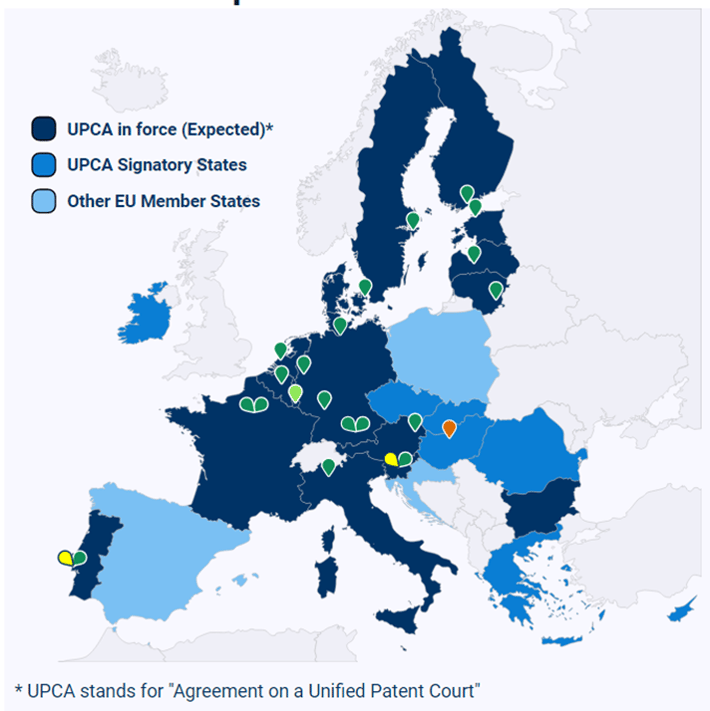
Towards the end of last year I told you about an important upcoming development in the patent system: the Unitary Patent (UP) or European Community Patent, which will allow you to register a granted European patent in 17 European countries in one go. And that's not all. On 1 June a specialised European Patent Court, known as the Unified Patent Court (UPC), will also be launched. What does this involve and what does it mean if you already have a European patent or are considering applying for one? Let me explain.
The current situation: litigating in each individual country
In Europe we have had the option of applying for a common European patent, having it assessed centrally by specialised examiners at the European Patent Office for novelty and inventive step, and having it granted for close to 50 years now. In the event of court proceedings on account of a patent infringement for instance the case currently still has to be brought before a national court for each individual European country.
The new situation: a specialised European patent court
With the advent of the Unified Patent Court (UPC) we are moving towards a situation in which this is going to become a lot more efficient and straightforward. The court will have jurisdiction to rule on patent infringement and validity disputes. If someone infringes your European patent, one central court case will suffice, which will then lead to a ruling that is valid in all member European countries.

All dark-blue European countries are participating right from the start. The UK unfortunately had to withdraw from the Treaty following Brexit. There are also a few other European Union countries that have chosen not to participate (for now).
Do you have to?
Do you necessarily have to go through the Unified Patent Court for a ruling on your European patent? No, this is not going to be mandatory for the next seven years. As a (prospective) patent holder you are given the choice of:
- Opting in: you participate and the UPC will rule on any litigation involving your European patent; or
- Opting out: you do not participate (yet) and any litigation involving your European patent will continue to go through national courts for the time being.
This is because a transition period of seven years has been agreed. If you decide to opt out, you can still change your mind during this period and opt in later.
Make a choice that suits your European patent
The choice to opt-in or opt-out varies from situation to situation. The safe route is to first wait and see how the Unified Patent Court develops and what its quality is going to be like. You can then always decide to opt-in later.
Whatever you choose, in most cases it never actually comes to litigation at all. Fortunately, there is still a lot of mutual respect among innovative companies for each other's Intellectual Property Rights, and quite rightly so of course!
Personally I look forward with anticipation to the advent of the Unified Patent Court. A great deal of hard work is being put into it and I have already heard the names of some very experienced judges being mentioned. On top of that, my colleague Marcel Kortekaas even conducted a trial hearing for the local branch of the UPC in The Hague last week. These are some good developments as far as I am concerned. And who knows, maybe one day I will live to see a world court for patent disputes.










